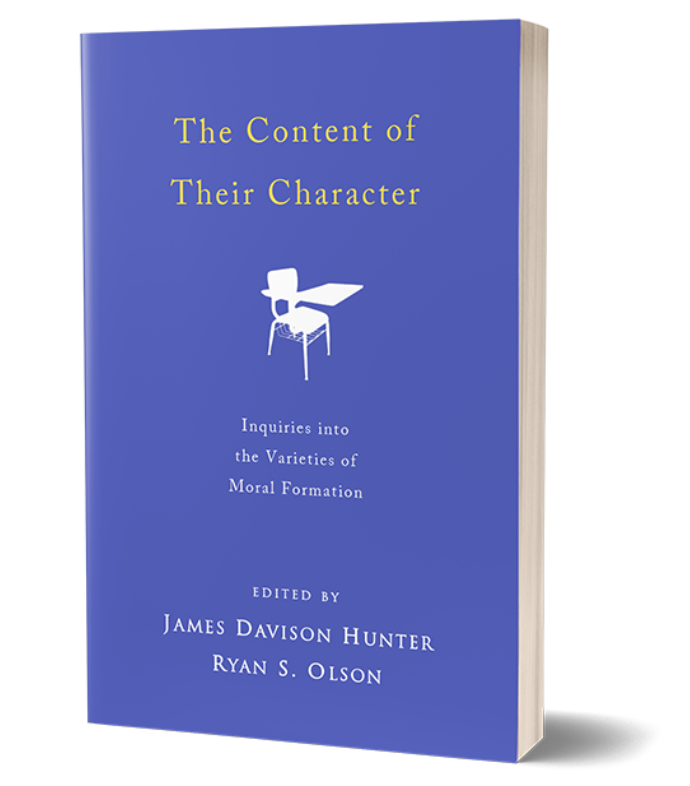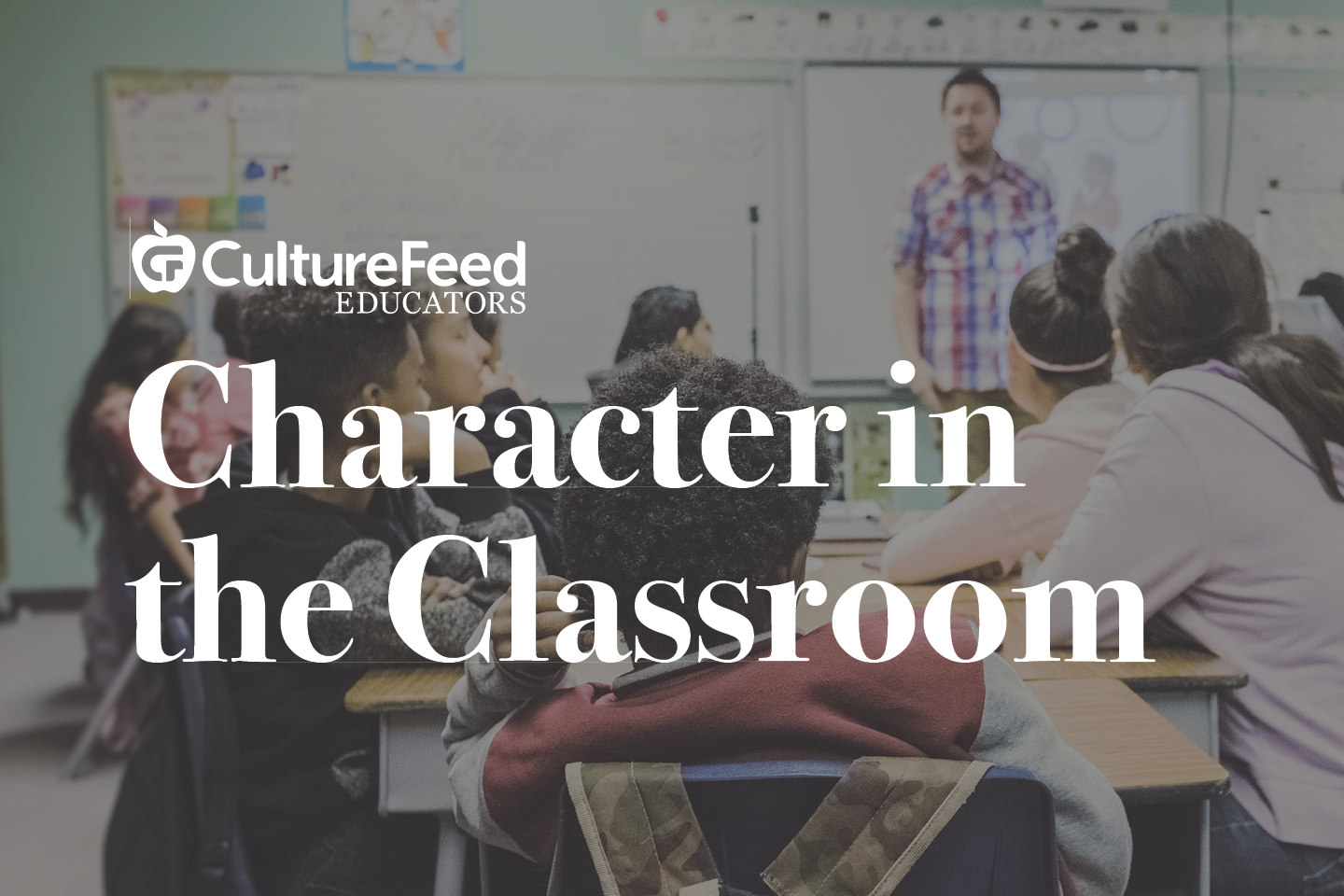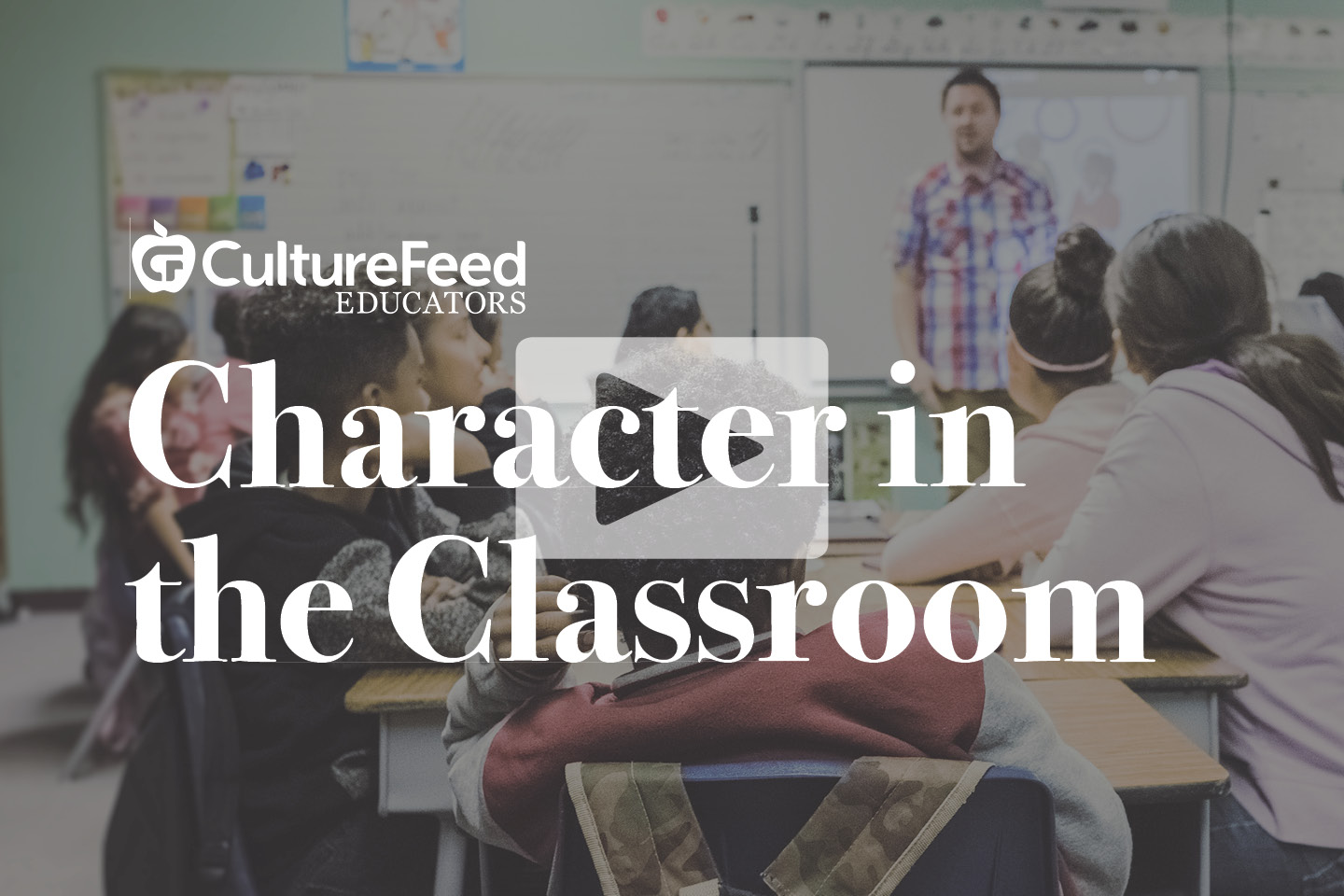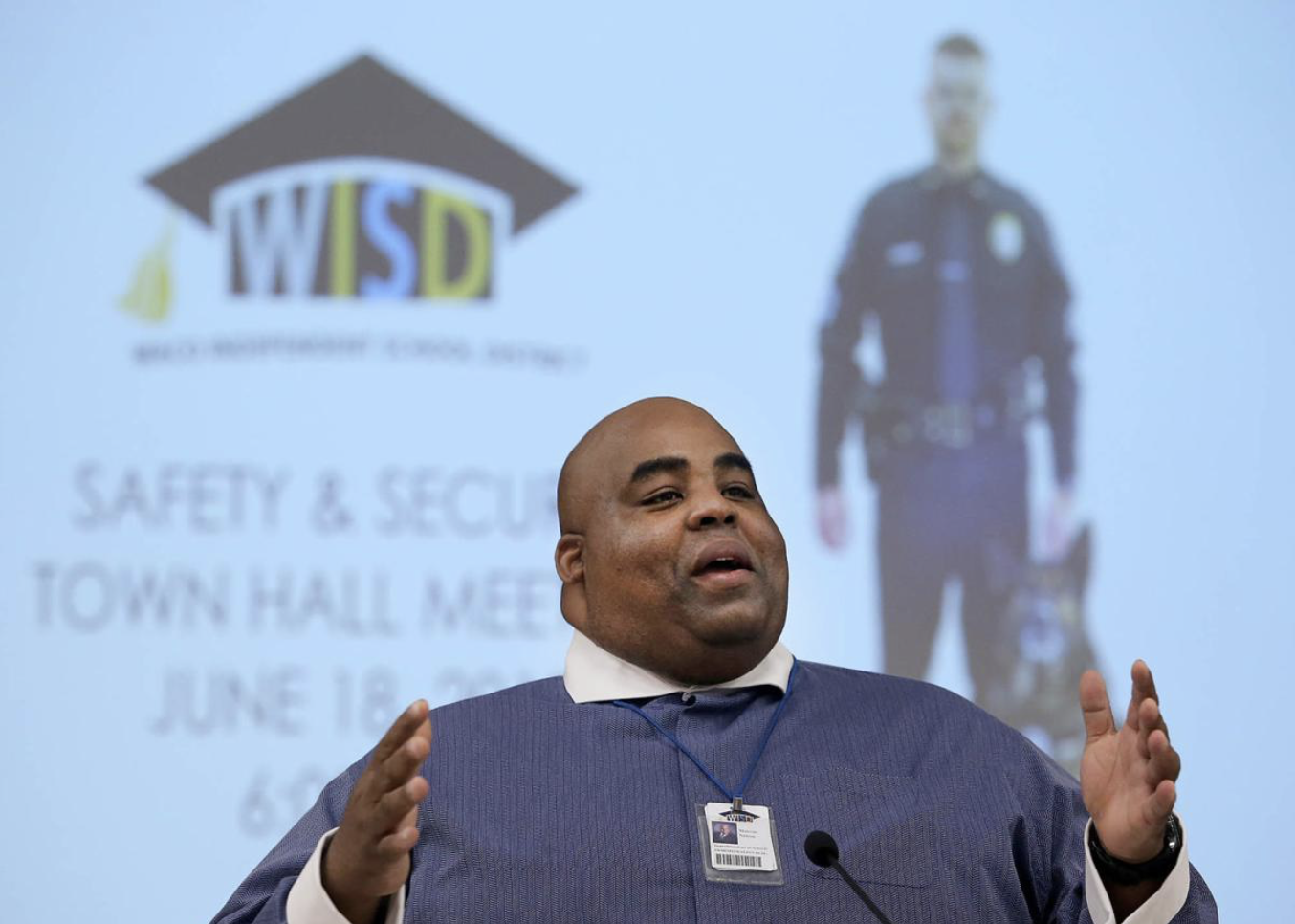This is a lightly edited transcript of an interview conducted on August 13, 2019 with classical educator Joshua Gibbs. Mr. Gibbs teaches humanities at the Veritas School in Richmond, Virginia. He is the author of How to Be Unlucky: Reflections on the Pursuit of Virtue. Gibbs blogs about education here.
Joanna Breault: Thank you for joining us today. I just wanted jump right into our discussion of virtue. You have a book that was published back in 2018 called How to Be Unlucky: Reflections on the Pursuit of Virtue, and I noticed that it contains a statement that “effective education is primarily concerned with the acquisition of virtue.” I think there might be some watching this [interview] who maybe aren’t familiar with the term virtue, or [think] that can sometimes maybe sound old-fashioned. Can you explain, first of all, kind of what you mean by this term and then what you mean by the idea that education should be primarily concerned with acquiring it?
Joshua Gibbs: Well, when I say that education ought to primarily be concerned with the acquisition of virtue, I’m thinking of a claim that Walker Percy once made, which is that you can get all A’s and still flunk life. You can be very good at what you do and still be miserable in your life. And the way that you don’t flunk life is by pursuing virtue; the way that you succeed in life is pursuing virtue. And when I say virtue, I would define a virtue as “a quality of excellence in a human being.”
So, the ancient Greeks and Romans acknowledged four virtues: wisdom, justice, courage, and temperance. And Christianity added three virtues to those, and those three virtues are faith, hope, and love. And so the kind of education that I offer my students, the kind of education which classical educators offer, is an education in all seven virtues: faith, hope, love, wisdom, justice, courage, and temperance.
JB: Okay, thank you. That’s helpful. And so, I guess that answers the question, Then why they should be primarily concerned with that? You’re talking about succeeding at life and not just winning the game. In your pursuit of that, how do you go about that? How do you go about teaching those seven virtues? What kind of lessons do you find useful that seem to stick with the students after they leave your class?
JG: Well, a classical motto is “all things by imitation.” And so the modeling of virtue for students in my classroom is primarily done through the examination of classic texts, texts which have lasted, texts which have been submitted to the difficult test of time and succeeded. So I model virtue for my students or I tell them to model the virtue in—virtue as it’s presented in—a text like Jane Eyre or Paradise Lost or Frankenstein. Those are some of my favorite books to teach. Those are some of my favorite books to teach virtue from.
So, I wouldn’t hold up myself as an example of virtue. I would look at men and women who have contributed something great and something lasting to the world and look at faith or love or courage as they modeled it. And I wouldn’t say that there’s a difference between virtue and the pursuit of virtue. And so I wouldn’t tell my students, you know, “be like me”; I’m not worth imitating. I would tell them, “Be like Jane Eyre”; I would tell them to be like Solomon. I would point to someone whose life was really worthy of imitation. At the same time, you can’t just tell someone, “Go be good.” The response to that is, “Well right, but how?”
JB: Right.
JG: There’s something kind of strange and funny about the rookie preacher who just keeps shouting, “Stop sinning!” to the congregation, to which the congregation ought to respond, “Right…you know, how do we do that? That’s what we’re here for.” You have to tell them that. So I think that there are habits of life that are consistent with the pursuit of virtue, and those are really kind of where the rubber meets the road.
So as far as me and my students are concerned, there’s various habits that I would say tend towards the acquisition of virtue. One is respecting traditions that last. Another is reading generously: delving beyond first, not trusting first impressions or second or third impressions. I often tell my students that the work of an intellectual is to get all the way to sixth or seventh or eighth impressions. And to, you know, to dial it back. Use the common sense of your third impression and the nuance of your sixth impression and wait to speak until you really know what you want to say. Don’t speak off the cuff. But then the daily habits of prayer and the recitation of canonical texts I think are terribly important in the acquisition of virtue as well. All of my students daily—in class every day—recite lengthy portions of all the books that we read in class.
So those are some of the habits, those are some of the ways, in which we can pursue virtue. And I would model those practices to my students. Even if I didn’t say, you know, “I’ve obtained virtue; just be like me,” I would tell them, “I myself am trying to be like Jane Eyre; I myself am trying to be like Boethius or Solomon.”
JB: And so would those literary texts be what you would consider sources? Or I guess you’re saying they’re more models. Sources would be the Scriptures, the ancients. But those would be the models that you go to.
JG: Yeah, those would. Yeah, I would. So I’m not a Bible teacher. I’m not a theology teacher, and I think that while I reference scripture all the time and I reference biblical truths in class, I’m not a trained theologian. It’s my place at the school to teach classic literature, and I believe that you learn virtue from scripture. But I believe that God is very generous, and that he’s not stingy, and that he’s granted a great many people knowledge in virtue. And so when I read or teach Jane Eyre or Frankenstein or Paradise Lost, I believe it’s the generosity of God that’s being studied and understood in these books, even if it’s not a canonical scripture.
JB: Do you tend, with a piece of literature, to focus on one virtue? Or do you pull multiple examples of different virtues from one text?
JG: I would say I pull multiple examples. There are certain texts, of course, that tend towards a meditation on a certain virtue. There is a lot about the virtue of chastity and the vice of lust in a book like Jane Eyre. There’s a lot about the vice of idle curiosity and the virtue of steadfastness in Frankenstein. So I think all these books tend towards a discussion of a certain virtue and a certain vice, although you’ve got to be open, on every page, to what it is that the author has for you.
JB: I read recently a blog post that you wrote about teaching virtues through history. Can you talk a little bit about that?
JG: Yeah. So as a classical educator, I believe that the purpose of any class is teaching virtue, so if it’s a geometry class, if it’s a biology class—no matter what the class is—it’s about inculcating virtue in students. And I think that there’s often a temptation to view history as a discipline which is separate from the pursuit of virtue, there’s a temptation to treat history as just a catalog of names and dates and peace treaties and wars and body counts and generals and that kind of thing, and to not have any heroes in a history or to not recognize any villains in a history. And objective facts don’t train human affections; subjective judgments do, which means that when you teach history, you need to uphold certain people as worthy of imitation and you need to condemn other people as being villains and scoundrels who are not worth imitating, not worth modeling your life after.
And of course, you have to teach names and dates and facts and peace treaties and wars and all the rest. But the point of unloading all of that information on your students is aiding them in making judgments about who is good and who is evil, and who did good and who didn’t do good. And unless history class tends towards the upholding of certain men and women as worthy of imitation, you’re not going to capture the heart of a student. Merely throwing [out] a lot of facts and names and dates is not going to inspire love. But if you uphold certain people as being worthy of imitation—if you have heroes, if you admire people, if you love people…. No one ever loved a method. We love people, not methods, and so history class needs to have people worthy of love—and worthy of hatred, as well.
JB: How do you find students responding to this kind of approach to history? Are they more engaged than otherwise? What’s their response like?
JG: Well, that’s an interesting question. So it depends on what point in the student’s career you’re asking about. It sometimes happens that early enough in the year, students ask in the middle of a lecture on history, like, “When are we going to get to history?” And what they mean is, When are we going to get to a long catalog of names and dates and wars and peace treaties? And while I think those things are valuable and you can’t teach history without those things, the idea that history is mainly confined to those things is a weird assumption that a lot of students come into class with.
And so I think that early on, students can be a little put off by the fact that… teaching virtue through history is not necessarily a way of teaching history that’s going to boost your SAT score, because the SATs are not concerned with virtue. They’re not concerned with who was a hero and who was a villain. They’re concerned with rote facts that can be put on a list of multiple-choice options. And students know this—even students at classical schools know this, because they’ve taken standardized tests—and they realize that the way that the standardized test asks for information is different than the way that someone who’s teaching for virtue asks questions.
So I don’t give multiple-choice tests. I don’t give tests that are like SAT tests. The purpose of a test should not just be an IRS audit of the mind to see what you know. A test should be a learning experience. A test should be a transformative experience. Too many tests are just bureaucratic. And the primary way that students conceive of history is a kind of bureaucratic list of things to know that is then tested over in a bureaucratic-like document that is called a test. And so breaking students of the idea that there’s any value in that—that that kind of thing is transformative in and of itself—is something that can take a while.
JB: That makes sense. They’ve been so shaped by the culture to think of learning in a certain way; it makes sense that there would be a process there. So I know that your book contains some of your own story, your own journey, as related to this topic. Can you just share a bit of that story—how you came to the convictions you hold now?
JG: Yeah, absolutely. I’ve been a teacher for—this would be my 15th year. I’m 38 years old. I was a terrible student in high school. I was not interested in learning. I was not interested in virtue. I was very interested in my friends. I was very interested in popular culture. Top 40 radio was a kind of sacred text to me that I studied with all the diligence that the ancient Hebrews would have studied the Pentateuch [with]. I was a very shallow person, and I carried that shallowness into college. And most of my time in college was wasted as well. I was very arrogant; I thought I knew better than anyone. I was a terrible student. I didn’t like to read.… I didn’t like to read until I got married. And something happened when I married. And you know, I was the kind of student that would brag about passing a test on a book that I hadn’t read—that’s the kind of high school student I was.
There was one thing I could do as a student. As a writer, I was a decent stylist. I had nothing of substance to say, but I was a decent stylist. And several years after I graduated high school, I was invited to teach a composition class at a very small private school in town. I was invited to be a composition teacher by some former teachers of mine in high school who knew that I was a competent stylist. And so I went to work at a very small private school teaching composition, and I was successful at it in my first year, and the second year I was asked to teach an additional class. I began teaching a history class the second year, and by the third year, I was teaching a history class, an English class, and a composition class. I just added classes year by year.
And it was during that time that a friend of mine got a job at a classical school, and he…kind of shoehorned me into this position at a classical school. But I got a job teaching classical literature having not read any classical literature myself.
I was a sham. I was a con artist. I got a classical education teaching classical literature—that’s really when it opened up to me. And the first book that ever really did it, as I described in How to Be Unlucky, was The Consolation of Philosophy by Boethius.
All my life I thought philosophy was an esoteric discipline that was always going to be over my head. But then I read The Consolation of Philosophy by Boethius, and it was the first work of philosophy that made sense to me. And that was a turning point in my life. I realized that I had to make this career as a teacher work.
And so I slowly started acquiring, on my own, the classical education that I was offered when I was younger but didn’t accept. So this meant, because I was receiving a classical education as I taught these books for the first time, that I didn’t come to these books with a strong sense of judgment over them. I didn’t condemn these books. I had no idea what the books were going to say—so I had to keep an open mind as I read them, often reading out loud, in class—for the first time—things that I was teaching! So, you know, I’m not proud of any of this—this is, you know, 12 years ago, 11 years ago now—but that really is how I got into classical education. I was a something of a scam who was forced to become authentic to keep food on the table, I guess you could say.
JB: That’s a great journey. I mean it’s refreshing, honestly, to hear that kind of transparency, and it’s just cool to hear how you got to where you are now. Going back to the whole topic of virtues: Pop culture is so strong, as it was in your teenage years—maybe all the more so now—how do you see the influence of pop culture sort of colliding with what you’re trying to teach at your school? Is there a lot of grappling that goes on? How do kids come in line with this idea that virtues are worthy of their attention?
JG: Well, one of the most important ways that I present virtue to my students is that a virtuous life is a stable life. A virtuous life does not require great personal upheavals. So, I mean, an example of this would be—I often tell my students, “Anything that you do today that you promise yourself you’re not going to do when you’re older you should just stop doing now.” So if you go off to college and you make it through college telling yourself, “I’ll drink less when I’m older,” well, you should start drinking less now. If you’re having to promise yourself these great changes in the future in order to imagine yourself stabilizing as an adult, you should try to move towards those changes that you know you’re going to have to make as soon as possible.
And one of the things about pop culture that I often try to persuade my students of is that pop culture is exceedingly ephemeral. It’s exceedingly passing; nothing lasts very long in popular culture. The most popular song in the country right now will be an embarrassment a year from now. The songs that fill the dance floor this year will clear the dance floor next year. The songs that everyone loves this year will induce groans just by mentioning them next year.
And students have often never thought about why things are popular and then they’re not anymore. Like, why is it that something was popular six months ago but it’s not popular now? And if you walk students through that, they say, “Well, you know, we got sick of it.” But why did you get sick of it? Why do we get sick of some things and not others? Why do we get sick of a Macklemore song, but 200 years later we’re still listening to Beethoven? Why is it that some things last and other things don’t? Why have we been reading Paradise Lost for over 300 years and yet the most popular books of ‘91, ‘92, ‘93, ‘94—I’m like, “No one reads these books anymore.” What is it that makes a thing last?
And one of the great things that I want students to come away from a classical education with is the sense that if you feed your soul with things that last, you will last too. You will know who you are. You will have a set of responsibilities that you subscribe to year after year, decade after decade, and when you turn 40 or 50 years old, you will not look in the mirror and say, “Who am I?” and not have a great answer to that question. Whereas if you love and feed your soul on ephemeral, sensual trash, if your soul is primarily sustained today by things that you will despise and laugh at five years from now, you will change with it, and you will not know who you are or what you’re supposed to do, because you don’t love the same things that you used to. And the kind of alienation and confusion that settles into the human heart that has not consistently loved things is what prompts people to spend their lives on terrible things, to do terrible things.
If you don’t know who you are, you don’t know what you’re supposed to do, and if you don’t know what you’re supposed to do, you’re probably going to do something terrible. So I encourage students to love things that have lasted and to try to relegate the ephemeralities of popular culture to a smaller and smaller place in [their] diet of things. I’m not saying that you’re wicked if you listen to a Top 40 song, but I am saying that you don’t want to become comfortable sustaining yourself on things that feel good and don’t last.
JB: That’s well said. Thank you. Is there anything else that kind of comes to mind as you think about this topic that you feel is important for educators think about—maybe educators who…the virtues are not part of something that they’re being told to teach? How they should work that in or change their thinking?
JG: I think I would encourage educators to regularly ask themselves whether they’re playing a long game. Do you have an eye on what kind of person you want your students to be when they’re 75 years old? Or do you merely care about getting them into a line of work when they’re 19 or 22, when they graduate high school or college? Is it all about trading grades for scholarships, trading scholarships for better colleges, trading better colleges for better jobs, better jobs for better paychecks?
Then what? If it never really gets beyond better paychecks, then you’re not really playing the long game, because society proves to us over and over again that better paychecks do not satisfy the human spirit; they do not satisfy us in the long run.
So I would encourage teachers to play the long game and to consider often how you’re helping your students become old. Like what are you offering them today that will be of value to them when they retire? And if you’re not offering them anything of value when they retire, then you’re setting them up for failure in the long run. So, you know, play the short game, be faithful today, but keep an eye on the long game as well.




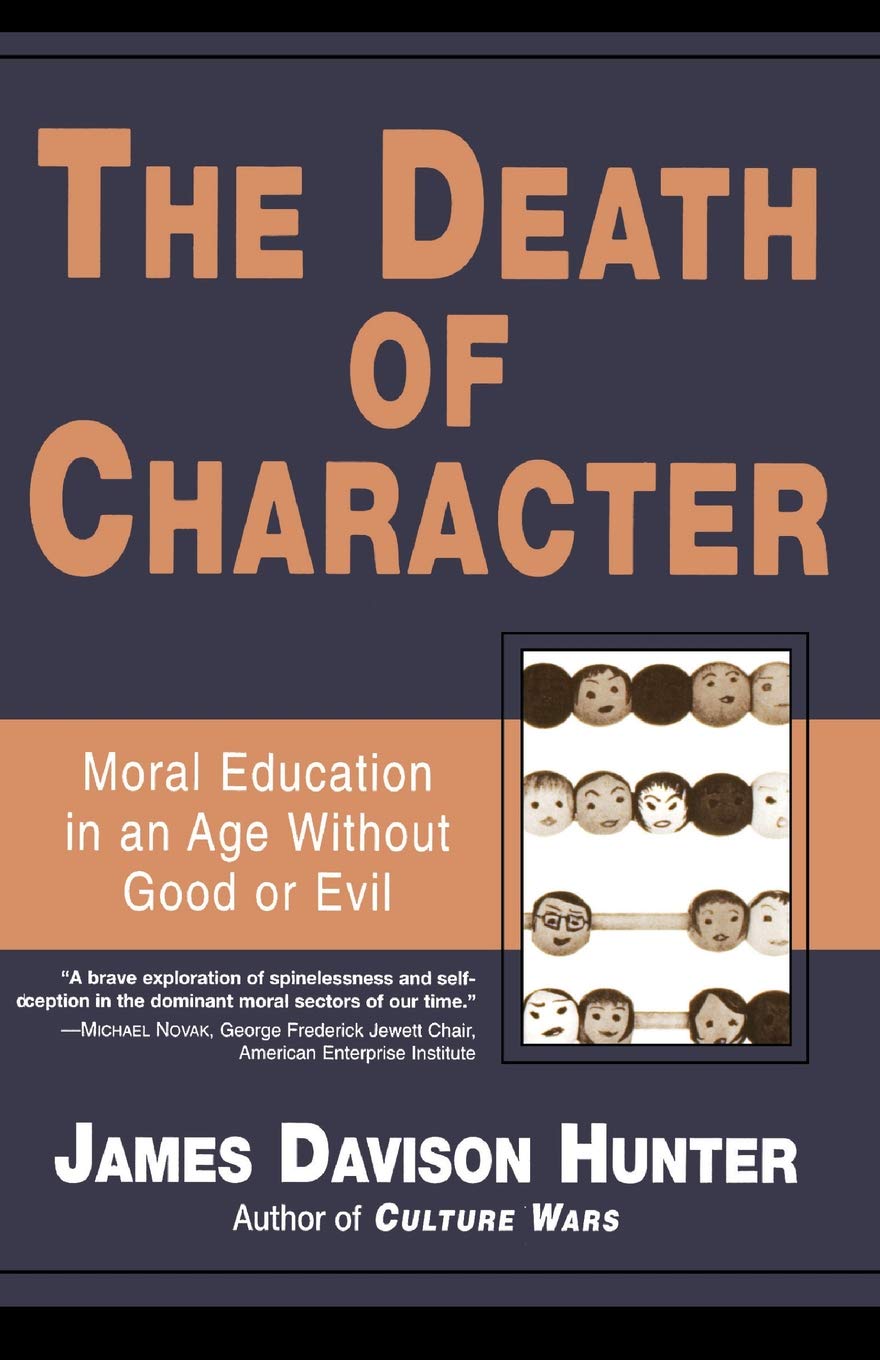 And then I read The Death of Character. Its impact was dramatic. Suddenly, I understood why almost none of the programs seemed to be working. They weren’t working because there was a fundamental design flaw.
And then I read The Death of Character. Its impact was dramatic. Suddenly, I understood why almost none of the programs seemed to be working. They weren’t working because there was a fundamental design flaw.